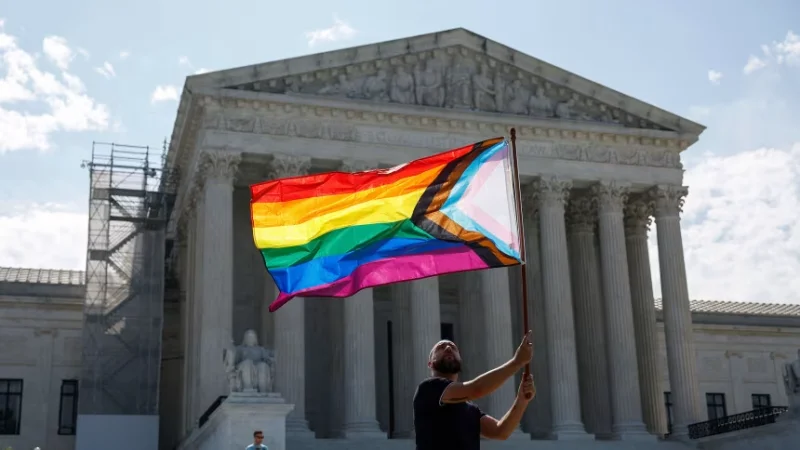A Sigh of Relief Across the Atlantic
In a decision that has LGBTQ+ advocates in the United States breathing a collective sigh of relief, the Supreme Court on Monday refused to hear a case aimed at dismantling nationwide marriage equality. The challenge came from a familiar face of intolerance: Kim Davis, the former Kentucky county clerk who became infamous in 2015 for refusing to issue marriage licenses to same-sex couples, citing her religious beliefs.
The court's rejection of her appeal, made without comment, means that the landmark 2015 ruling in Obergefell v. Hodges remains the law of the land, protecting the right of same-sex couples to marry in all 50 states.
The Clerk Who Became a Symbol of Intolerance
For those who may not remember, Kim Davis became an international headline in 2015. Following the Supreme Court's legalization of same-sex marriage, she defied federal court orders and refused to issue any marriage licenses from her office to prevent same-sex couples from marrying. Her actions led to a dramatic standoff that resulted in her being briefly jailed for contempt of court.
This latest legal battle stemmed from a lawsuit filed by a couple she denied a license to. A jury ordered Davis to pay $360,000 in damages. In her appeal to the Supreme Court, she not only sought to overturn that verdict but also asked the court to fundamentally reconsider and overturn Obergefell itself, arguing her religious freedom was violated.
A Victory, But The Threat Remains
While this is a clear victory, it's crucial to understand the precarious state of LGBTQ+ rights in the US. This appeal didn't happen in a vacuum. It comes in the wake of the Supreme Court's shocking 2022 decision to overturn abortion rights, a move that has emboldened conservative activists to target other landmark rulings.
- Justice Thomas's Ominous Warning: In his opinion on the abortion case, conservative Justice Clarence Thomas explicitly called on the court to "reconsider" past rulings, specifically naming Obergefell v. Hodges—the very case that guarantees marriage equality.
- The Limits of Legislation: While the US Congress passed the 'Respect for Marriage Act' in 2022, it's not a perfect shield. The act ensures the federal government recognizes same-sex marriages, but if Obergefell were ever overturned, individual states could once again be free to ban them.
- Ongoing State-Level Attacks: According to legal advocates, numerous US states continue to introduce legislation aimed at undermining marriage equality and other rights for LGBTQ+ families.
A Reminder for Us in the Netherlands
For us in the Netherlands, where marriage equality has been the law of the land for over two decades, this news serves as a powerful reminder. It shows that the fight for equality is never truly over and that progress can be fragile. The political climate in the US has a global impact, influencing anti-LGBTQ+ movements worldwide. Today's victory is worth celebrating, but it also reinforces the need for continued vigilance and solidarity with our community across the globe.





